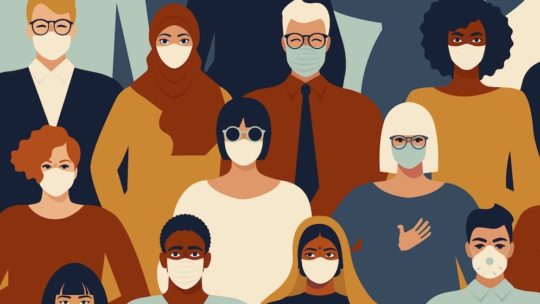
During COVID-19, as companies and organizations focus on business continuity, some leaders are wondering as a McKinsey report considers: Is diversity and inclusion (D&I) a luxury or a necessity? The answer goes beyond business or morality. As PR pros, what is our responsibility as strategic counselors as we aim to connect with those who matter most?
While coronavirus is ubiquitous, it is starkly different too. For example, black and brown communities are absorbing a disproportionate percentage of US COVID-19-related deaths. Women accounted for 55 percent of jobs lost during April. LGBTQ youth are particularly vulnerable to the virus's mental health impacts. And people of Asian descent are on the receiving end of hate crimes to a disproportionate degree, according to StopAAPIHate.com, which received more than 1,700 incident reports in six weeks.
Next, consider stereotypes. May is Asian Pacific American Heritage Month. But how many people are aware of it, or Asian American history? How often do people buy into the Model Minority Myth, a construct that positions Asian Americans as the good minority? Sometimes this is used to create a wedge against other communities of color.
The Asian American Pacific Islander (AAPI) community is not a monolith. Some 45 countries make up Asia, a region without a common language or religion. Despite the book series and film Crazy Rich Asians, 12.3 percent of Asian Americans live below the federal poverty level.
'Am I Your Only Asian Friend?'
Demographics indicates many of us live segregated lives. We see it in PR, where 83.6 percent of PR pros are white, according to the Bureau of Labor Statistics. Among white Americans, 91 percent of their friend groups are white, another survey says. PR pros are supposed to communicate authentically and meaningfully. How can we do so when our perceptions are drawn largely from what we see on screens? We need to broaden our personal and professional friend groups.
The Risks of Sameness and Exclusion
While COVID-19 has exposed alarming socioeconomic disparities and a lack of inclusion in our society for those in underserved communities, it is important to think long term.
It is clear that trust, social purpose and corporate reputation are necessary for a better future. "World in 2020" lays bare that a lack of D&I poses social risks to organizations. D&I ties to the way a company recruits and retains employees, innovates, solves problems and develops products. Similarly, D&I is linked to long-term variables such as corporate sustainability, not short ones, such as quarterly earnings.
The post-COVID world calls for organizations to:
Build Empathy as a Mission-Critical Skill
This is an opportunity for leadership to connect with employees who are fearful for their safety or were victims of a hate crime. Organizations have an opportunity to develop content that supports its AAPI workforce as well as underrepresented communities. Provide resources and safe zones and educate staffs about marginalized communities. Project Implicit offers implicit association tests, including one that addresses COVID-19-related bias.
Make D&I the Solution
“In these unprecedented times, Americans view companies as critical stakeholders, not only in current relief efforts but more long-term results," a Porter-Novelli survey shows. It adds, "In fact, one-third of Americans have more faith in business to create solutions to address the pandemic than other entities, including government and nonprofits."
Brands will be remembered for what they did or did not do during the pandemic. It is foolish for organizations to hit pause on D&I now, owing to budget cuts. However, several studies show internal communications is failing to include D&I content during the pandemic.
For D&I to work, it must be a continual C-suite priority, central to an organization and aligned with its purpose and long-term goals. The lack of D&I poses social risks to an organization and signals poor leadership, short term-ism and a lack of transparency and accountability.
Put People First, Now and Always
If the pandemic has taught us anything, it is the need for transformational versus transactional thinking. Build a better world through better private-public partnerships. Get to know your stakeholders holistically. Learn how they live and the socioeconomic realities they face. Brands and organizations that are unprepared to meet multicultural needs, the multigenerational workplace could disappear overnight.
Especially during COVID-19, D&I is not a nice to have; it is survival. Communicators at companies and organizations must have the courage to encourage leadership in the face of the unknown. We won’t do that if we continue to act in the same old ways that shut out people from our profession. We can lead by being inclusive and empathetic.
Angela Chitkara is a researcher and consultant with the World in 2020 Project Soon Mee Kim is EVP, global diversity, equity & inclusion leader, at Porter Novelli
Note: Angela Chitkara and Soon Mee Kim took part in a free, virtual event recently to celebrate Asian American and Pacific Islander Heritage Month. It was held at the Museum of PR. You can access it here.
